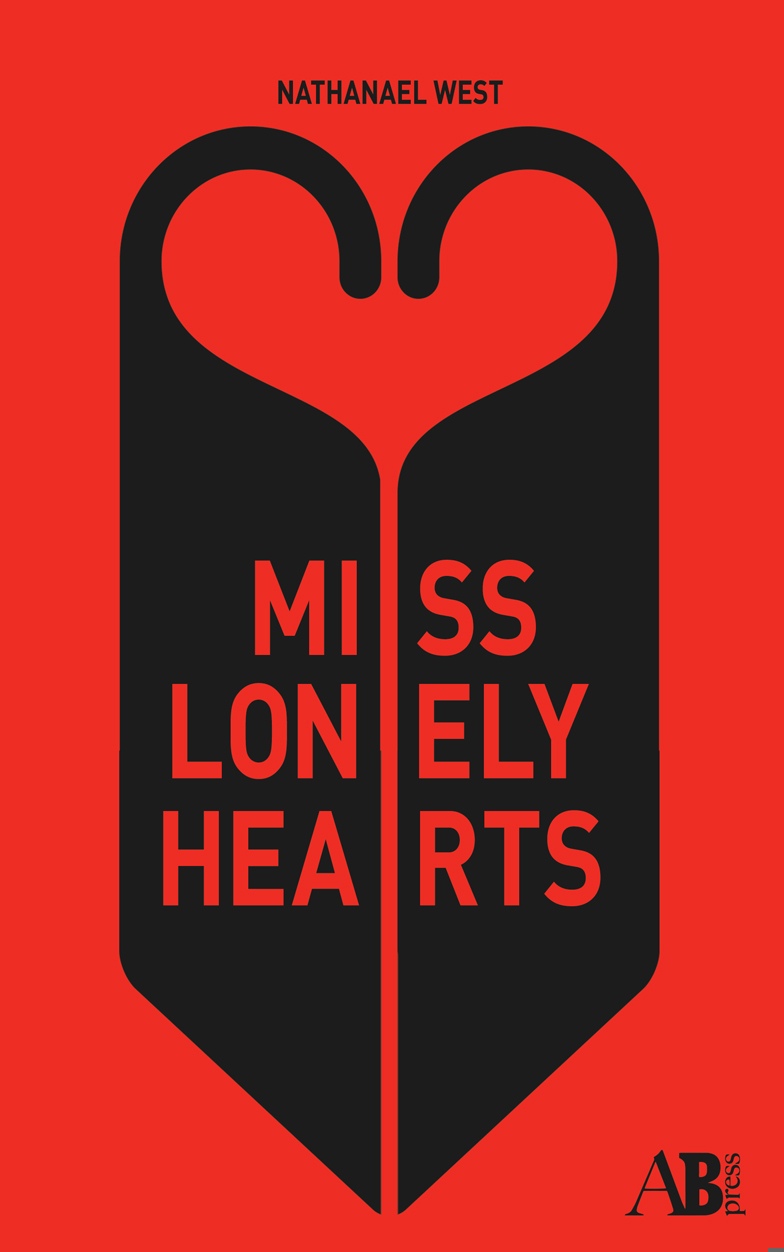Biography
NATHANAEL WEST (1903-1940) was born Nathan Weinstein in Upper West Side in New York City. He was expelled from school and only just passed his degree at Brown University. He had gained admittance to both college and university by deceit, after he had forged his high school transcript and ‘borrowed’ one from a cousin who had the same name for his university entrance. (Malcolm Cowley referred to these misdemeanours as “the ethics of Dada.”) His Jewish background excluded him from much of fraternity life at university. He was supremely inadequate at sport, a trait he mythologized as raconteur and writer, and he flunked his classes spectacularly. When a student he read widely, though he was drawn far more to French surrealism, Dada and the Fin de Siècle British and Irish writers, Oscar Wilde especially, than to the bestselling realism of his time.
His family’s business failures meant that his financial support, which had afforded him life in Paris for three months in 1926, was withdrawn. From the late 1920s he worked for his father’s building firm, and eventually as night manager of Manhattan’s Hotel Kenmore Hall, then assistant manager of the Sutton Hotel, East 56th Street, which he turned into a writers’ retreat. Dashiell Hammett finished The Maltese Falcon there; Maxwell Bodenheim, Erskine Caldwell, S. J. Perelman (West’s brother-in-law), Edmund Wilson and others were frequent overnight visitors. This job also afforded West time to write: The Dream Life of Balso Snell was published in 1931 and Miss Lonelyhearts, considered his best novel, was published in 1933, though it had been started in early 1930 and finished in late 1932; A Cool Million followed in 1934.
These novels were commercially unsuccessful though. West relocated to Hollywood as a contract scriptwriter for Columbia Pictures. He worked on B movies mostly, with no outstanding success, and completed his last novel, The Day of the Locust, which was published in 1939. He had written to Scott Fitzgerald: “So far the box score stands: Good reviews—fifteen percent, bad reviews—twenty five percent, brutal personal attacks, sixty percent.” He admitted though that: “Sales: practically none.” This disappointed West, who originally had high hopes for the books but reflected that “I seem to have no market whatsoever.” Bennett Cerf, his publisher at Random House, was enthusiastic initially but in fact did little to promote the book. West described the book to Edmund Wilson as a “definite flop.”
Nathanael West died in California in December 1940 with his wife in a car accident when he jumped a stop line; by repute he was a bad driver. He was only 37. His great friend F. Scott Fitzgerald had died the previous day.
“…an artist can afford to be anything but dull.” – NATHANAEL WEST
“Wildly funny, desperately sad, brutal and kind, furious and patient there was no other like Nathanael West.” – DOROTHY PARKER
Contemporary reviews
Nathanael West died aged only 37, never to receive the recognition he deserved during his lifetime. This is West’s second novel, published originally in 1933 by Liveright of New York. It is possibly the best known of his four novels, and it had three film adaptions based upon it. It is set in New York during the depression and is described often as an Expressionist black comedy, and as a critique of post-war America and disenchantment with the so called American Dream.
West’s literary reputation at the time of his death was negligible. His literary consequence was gradually reassessed, and achieved a higher rank only in the 1950s. His moral satire – he was deeply disappointed by the American Dream and what he regarded as the capitalist nightmare it had encouraged – has become since a masthead for subsequent and similar dissent. W. H. Auden in 1962 wrote of what he termed “West’s Disease.” West’s novels still read as bleak and unremittingly dark. Auden said that West’s books were “parables about a Kingdom of Hell whose ruler is not so much a Father of Lies as a Father of Wishes.”
To look at the reception his writing received and how it changed over decades says much about literary taste. When Miss Lonelyhearts, often held to be West’s best work, was published in 1933, it received derisive attention from critics. The Los Angeles Times held it to be “tedious trash. …This book is both dull and dirty, and I hope I shall never lay eyes on it again.” Its realism was noted though. The Philadelphia Record likened West to “a kid who delights in pulling off the legs of a fly to watch it squirm” but praised his “unusual style” and characterization, whilst the Albany Knickerbocker Press opined that “its realism is almost too harsh.” Occasionally its intelligence was noted. According to the Washington News (DC) it was “often hilarious, often swaggering and mocking and cold.” Reviews for his later books were consistently harsh if not downright unfavourable. Several reviewers likened A Cool Million to Horatio Alger, a bestselling late nineteenth-century rag-to-riches writer whose reputation by the 1930s was in tatters.
When Miss Lonelyhearts was reissued first by New Directions in 1946, critics were prepared to allude to its sociological depth. Mademoiselle wrote that it was “a mordant study in contemporary loneliness,” and the New Yorker referred to it as a “bitter, psychologically complex story.” A 1950 reissue of The Day of the Locust similarly met new appreciation, and acknowledgement of its realism replaced previous declarations of disgust; the New Haven Register announced even that it was a book “destined to endure.”
In 1957, West’s Complete Works were published in one volume. By now the tide of unfavourable reception had been turned completely. The New York Post found that West was “an enormous talent;” that he possessed a “Swiftian mordancy and a poet’s eye coupled with a real moral passion.” Vital to this reassessment would have been its publisher, New Directions, founded in 1936 by the poet James Laughlin. It was seen very quickly to be a moniker of worth, and it added a credibility to anything it published. The attention paid to its branding suggested it was on the side of the literary angels: Alvin Lustig’s modernist abstract cover design alongside Heinz Henghes’ striking colophon had only added to its mystique. Its New Classics and Modern Readers series in particular resurrected many books with hitherto damaged or scant critical reputations. Miss Lonelyhearts was the first of West’s books to be reprinted under the New Classics imprint. Laughlin had remembered that it was William Carlos Williams (with whom West had edited the literary magazine Contact in the early 1930s, and who had printed first five of the chapters that comprise Miss Lonelyhearts) who had brought West’s work to his attention.
In 1962 Hayden Carruth was able to write: “Nathanael West, who died almost unknown in 1940, is recognized today as one of the most significant American writers of his time.”
Bibliography
Nathanael West’s Bibliography
1931: The Dream Life of Balso Snell
1933: Miss Lonelyhearts
1934: A Cool Million
1939: The Day of the Locust



